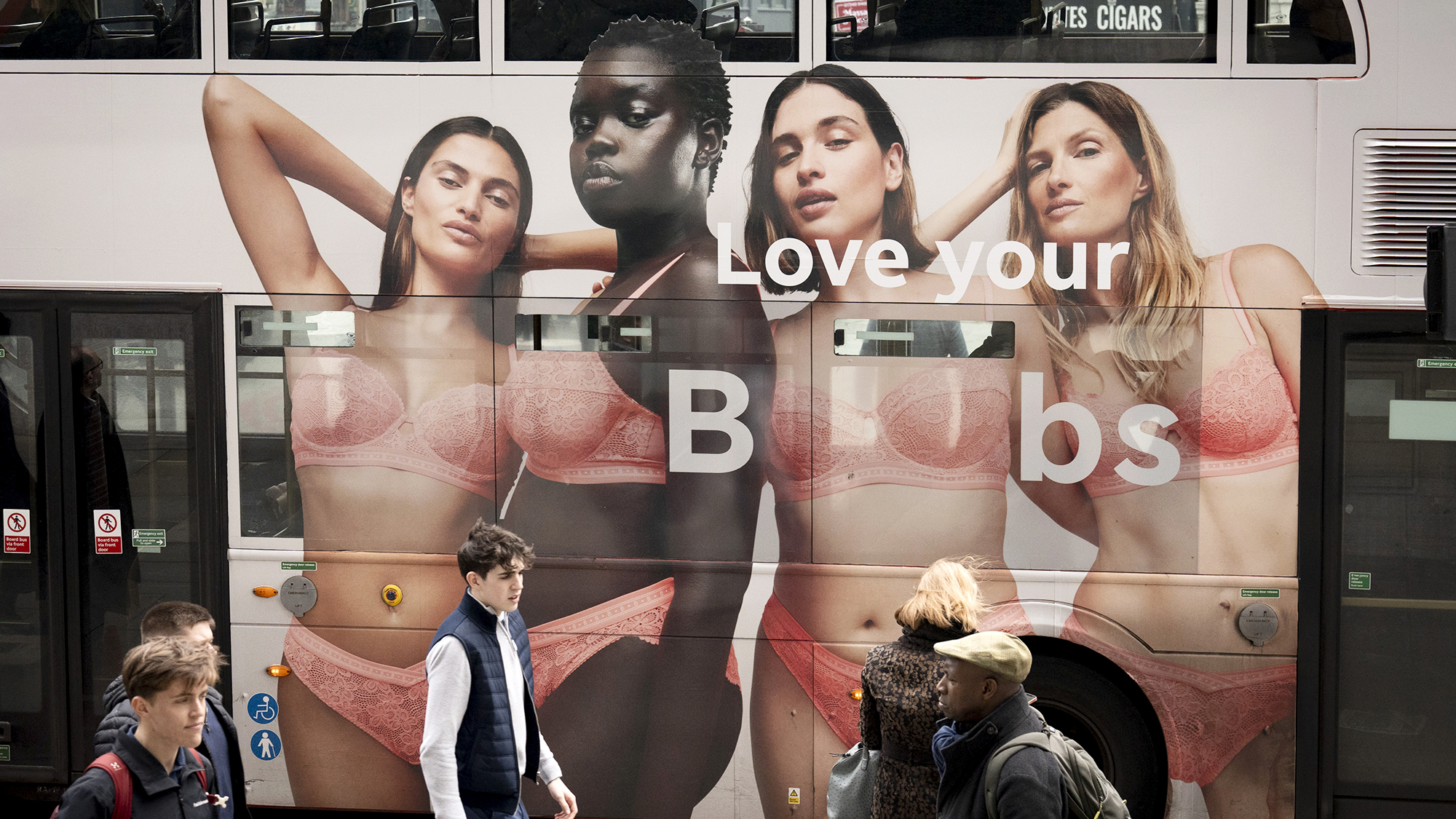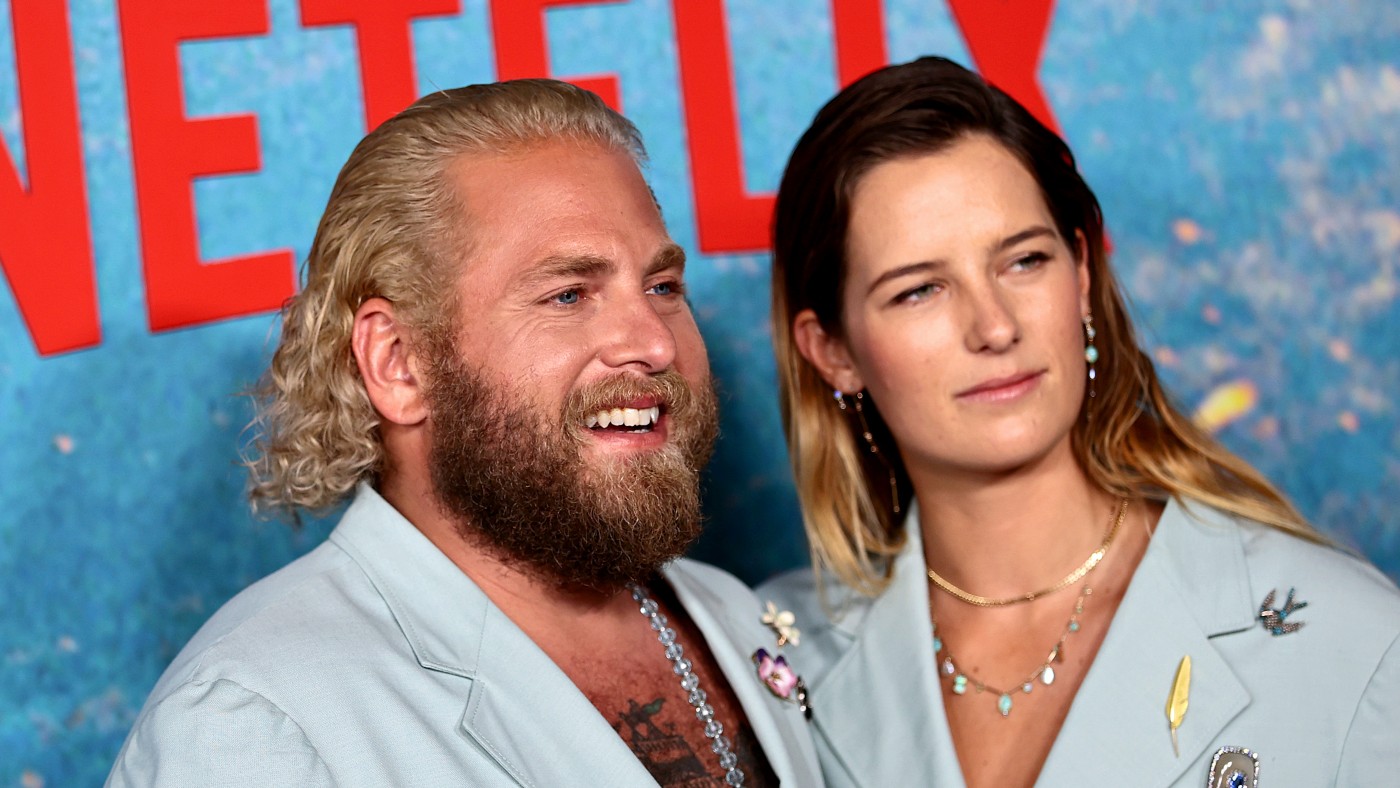Is the body positivity era over?
For some, a 'parade of skeletons' on the red carpet is a symptom of a return to an ultra-skinny ideal

A free daily email with the biggest news stories of the day – and the best features from TheWeek.com
You are now subscribed
Your newsletter sign-up was successful
A "parade of skeletons" at recent showbiz awards ceremonies shows that the "body positivity" movement was "built on wishful thinking", said Paula Froelich for The Free Press.
The movement, which encourages the celebration and acceptance of all physiques and body types, no matter how big or small, first emerged during the 1960s and enjoyed a revival during the 2010s – but is its latest chapter now over?
Distant memory
The pictures from the 2025 Screen Actors Guild Awards red carpet "speak for themselves" and "make for uncomfortable viewing", wrote Lisa Armstrong, head of fashion, for The Telegraph. Body diversity is "rapidly becoming a distant memory", replaced by the "new-old ideal" of weight loss.
The Week
Escape your echo chamber. Get the facts behind the news, plus analysis from multiple perspectives.

Sign up for The Week's Free Newsletters
From our morning news briefing to a weekly Good News Newsletter, get the best of The Week delivered directly to your inbox.
From our morning news briefing to a weekly Good News Newsletter, get the best of The Week delivered directly to your inbox.
In "a sea" of ultra-skinny A-listers, Selena Gomez had previously "stood out as a figure who represented a more relatable body type", wrote Alex Light for Glamour. Some fans felt "betrayed" by her "thinner appearance" at the ceremony. But famous women face "intense scrutiny" and we never know the "full context". Given that Gomez has spoken of her struggle with an autoimmune condition that can affect weight, it's "crucial" not to overlook the impact health can have on physical appearance.
Last year, the editorial director of British Vogue told the BBC that the fashion industry "should be concerned" by the resurgence of underweight models, pinning some of the blame on the popularity of the weight-loss drug Ozempic.
The recent news that a Next advert has been banned by the Advertising Standards Authority because the model's pose and the camera angle gave the impression she was "unhealthily thin" seems like "the kind of story that should be straight out of 2002", said Olivia Petter in The Independent. It goes to show that body positivity, "fun as it was for a while", was "only ever going to be transient" in the industry. We're "still a while away" from a time when "body inclusivity is something that brands embody because they believe in it" and "not just because they want to cash in on the latest trend".
Vague and platitudinal
The movement's "vague, platitudinal statements" were supposed to be "subversive rallying cries" and "signals of a shifting culture", wrote Sarah Manavis in The New Statesman, but that "blurry language" can be used to "promote the exact beauty standards it set out to disrupt".
A free daily email with the biggest news stories of the day – and the best features from TheWeek.com
Now, an "insidious, inescapable argument" sees many people "encouraging women to prioritise skinniness above all else" and "flipping body positivity language back on itself" by using its "self-care underpinnings" to "rebrand thinness as a health issue".
But we can't say body positivity is "over", psychology professor and body image specialist Dr Charlotte Markey told Page Six. At its core, it isn't about corporate platitudes or red-carpet looks, but the "psychological health" of the individual. "Most people want to feel positive in existing versions of themselves and body positivity was never about seeking perfection," she said. "It was always about psychological health."
Chas Newkey-Burden has been part of The Week Digital team for more than a decade and a journalist for 25 years, starting out on the irreverent football weekly 90 Minutes, before moving to lifestyle magazines Loaded and Attitude. He was a columnist for The Big Issue and landed a world exclusive with David Beckham that became the weekly magazine’s bestselling issue. He now writes regularly for The Guardian, The Telegraph, The Independent, Metro, FourFourTwo and the i new site. He is also the author of a number of non-fiction books.
-
 Local elections 2026: where are they and who is expected to win?
Local elections 2026: where are they and who is expected to win?The Explainer Labour is braced for heavy losses and U-turn on postponing some council elections hasn’t helped the party’s prospects
-
 6 of the world’s most accessible destinations
6 of the world’s most accessible destinationsThe Week Recommends Experience all of Berlin, Singapore and Sydney
-
 How the FCC’s ‘equal time’ rule works
How the FCC’s ‘equal time’ rule worksIn the Spotlight The law is at the heart of the Colbert-CBS conflict
-
 Stopping GLP-1s raises complicated questions for pregnancy
Stopping GLP-1s raises complicated questions for pregnancyThe Explainer Stopping the medication could be risky during pregnancy, but there is more to the story to be uncovered
-
 Obesity drugs: Will Trump’s plan lower costs?
Obesity drugs: Will Trump’s plan lower costs?Feature Even $149 a month, the advertised price for a starting dose of a still-in-development GLP-1 pill on TrumpRx, will be too big a burden for the many Americans ‘struggling to afford groceries’
-
 The battle of the weight-loss drugs
The battle of the weight-loss drugsTalking Point Can Novo Nordisk and Eli Lilly regain their former stock market glory? A lot is riding on next year's pills
-
 The strange phenomenon of beard transplants
The strange phenomenon of beard transplantsIn The Spotlight Inquiries for the procedure have tripled since 2020, according to one clinician, as prospective patients reportedly seek a more 'masculine' look
-
 Ozempic can curb alcohol cravings, study finds
Ozempic can curb alcohol cravings, study findsSpeed read Weight loss drugs like Ozempic and Wegovy may also be helpful in limiting alcohol consumption
-
 Jonah Hill and the rise of therapy speak
Jonah Hill and the rise of therapy speakTalking Point Film star’s texts to former girlfriend highlight new desire to apply language of psychotherapy to everyday life